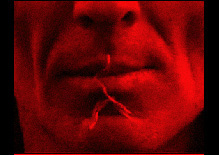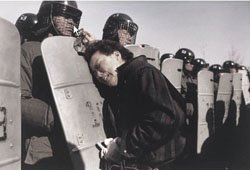Yerevan. April 8 2008
The recent developments regarding the Nagorno Karabakh conflict resolution endanger both the future of Nagorno Karabakh and prospects for peace in the region, and bear witness to the bankruptcy of the policy of Kocharian-Sargsyan regime.
The destructive consequences of the short-sighted policy that the Armenian regime has pursued over the last ten years reached a peak with the passage of the UN General Assembly Resolution of March 14, 2008, “reaffirming” the territorial integrity of Azerbaijan and “demanding the immediate, total and unconditional withdrawal of all Armenian forces from all occupied territories there.” The UN General Assembly Resolution has dealt unprecedented damage to the international positions of the Republics of Armenia and Nagorno Karabakh, attempting to predetermine the status of Nagorno Karabakh as part of Azerbaijan and demanding one-sided concessions from the Armenian side.
The weakening of Armenia’s position resulting from government’s policy did not come about overnight. Rather, the grave failure of Armenian diplomacy is a product of both the government’s flawed foreign policy over the course of the last ten years and its consistent deviation from the principles of democracy. Violating the Constitution, Kocharyan nominated himself as a presidential candidate in 1998 and 2003 and declared himself President through falsifying the elections. On April 12, 2004, the regime carried out a brutal crackdown against peaceful demonstrators. In 2005, the referendum on constitutional amendments was cynically rigged. These processes have had a further logical continuation. By the same methods, and even more brutally, the regime falsified the results of the presidential election of February 19, 2008 and in order to put an end to the just and peaceful protests of the people, it conducted the massacre of March 1.
In 1994, thanks to military and diplomatic victories, Armenia achieved the recognition of Nagorno Karabakh as a full party to the conflict at the OSCE Budapest Summit, thus generating international recognition of the self-determination of the Republic of Nagorno Karabakh. In contrast, by signing the OSCE Istanbul Charter in 1999, the Armenian authorities recognized the territorial integrity of Azerbaijan; moreover, upon the reprehensible initiative of the regime, Nagorno Karabakh was excluded from the negotiation process, and thereafter, the self-determination struggle of Nagorno Karabakh transformed into a territorial dispute between Armenia and Azerbaijan.
This redefinition of the essence of the Nagorno Karabakh conflict was pursued by the Armenian authorities with a single purpose: to affirm the leading roles of Robert Kocharyan and Serzh Sargsyan in Armenia before the international community through the fact that they, as former leaders of the Republic of Nagorno Karabakh, could represent Nagorno Karabakh in the Armenian-Azerbaijani negotiations. That was acceptable to the international community, since it resolved the problem of resistance by the Azerbaijani side to trilateral negotiations with the participation of Nagorno Karabakh.
With this arrangement, aimed at reinforcing their own power, the regime caused irreversible damage to the process of the international recognition of the self-determination of Nagorno Karabakh and undermined the sympathy of the international community toward the cause of the people of Nagorno Karabakh, thereby creating a basis for the recognition of the problem as an Armenian-Azerbaijani interstate conflict which resulted in the occupation of Azerbaijani territories. The change of attitude was manifested in the PACE resolution of 2005, where, de facto for the first time, Armenia was condemned for occupying Azerbaijani territories.
Further setbacks have been registered in the negotiation process over the past two years. The proposed solutions for the regions of Lachin and Kelbajar, introduced in the Madrid Document on Nagorno Karabakh of November 2007 and deposited at the OSCE Secretariat, represented a serious deviation from the proposals outlined in the OSCE Minsk group co-chairs’ statement of June 22, 2006.
Nevertheless, the greatest favor rendered to the Azerbaijani government by their Armenian counterparts thus far has been the forged presidential elections of February 19, 2008 and the subsequent violent dispersal and shooting of peaceful protestors before the eyes of the international community. These actions revealed the despotic nature of the Armenian authorities, thus sharply damaging their international reputation. The immediate outcome was the adoption of the UN General Assembly Resolution introduced by Azerbaijan, a resolution which had failed to achieve adoption for years. The true reasons for the adoption of the UN resolution are the jeopardized international reputation of Armenia and the utter failure of its diplomacy. Even with the support of the OSCE Minsk Group co-chairs for Armenia’s formal position, Armenia failed to provide the vote of friendly countries.
The adoption of the Resolution by the UN General Assembly paves the way for the adoption of pro-Azerbaijani documents by various international institutions, which Armenian diplomacy, with its reputation destroyed, will be unable to confront. Azerbaijan gained a trump card enabling its authorities to actually refuse meetings and negotiations. The desperate efforts of the Armenian authorities to arrange a meeting within the framework of the NATO Summit held in Bucharest on April 3 eventually resulted in failure. Despite the support of the OSCE Minsk Group co-chairs, Azerbaijan rejected the proposed meeting.
Thus, the policy of the Kocharian-Sargsyan regime over the past ten years has failed in the overall negotiation process and destroyed its reputation within international structures, contributing to the unparalleled acceleration of Azerbaijani claims. The continuation of the current policy, along with recent delirious pronouncements by the authorities, risk provoking military actions or even a large-scale war. Full responsibility for the failed negotiations and the weakening of the Armenian position lies with the current regime, which did not receive a mandate in the recent presidential election to represent the will of the Armenian people in the peace process.
To save
We will win this struggle.
The Party for Preservation of National Values
The Alternative Civil Initiative
The Third Republic Party
The Democratic Way Party
The Democratic Homeland Party
The Progressive Liberal Party of Armenia
The People’s Party of Armenia
The Marxist Party of Armenia
The Armenian Homeland Party
The Armenian National Movement
The Homeland and Honor Party
The Republic Party
The Human Rights – 96 Party
The New Times Party
The Conservative Party
The Social-Democratic Hnchakyan Party
The Social-Ecological Party
The Christian Democratic Revival Party









Aucun commentaire:
Enregistrer un commentaire